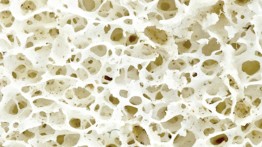COOPERMADE: EpiBone

EpiBone, the stem-cell startup co-founded by electrical engineering alumna Nina Tandon EE'01, combines 3D printing, 3D carving with stem cells to grow bone and cartilage. These living skeletal replacement parts may sound like the stuff of science fiction but Tandon’s company has made it a reality. The process works in three steps. First a CT scan of the patient gives all relevant data for size and shape of the bone; adult stem cells are also taken from the patient’s abdominal fat. Next, Tandon’s team fashions a model of the bone and builds a customized bioreactor—a sort of incubator that creates the ideal setting of nourishment, temperature, movement, and pressure for cell growth—to grow the extracted stem cells. Finally, stem cells are infused into the model, also called a scaffold, and developed into bone cells within the bioreactor. Bones can be ready to be implanted in the patient after three weeks.
Tandon knew going into the business that she and her team were trying to solve problems that would take years of research and experimentation. As the company’s CEO, she says that not burning out requires a great deal of stamina and inquisitiveness. “The real challenge with this job is to make sure that you show up every day to run a marathon, cheerfully. You must have that joy or else there is no fuel.”
Named one of the 100 most creative people in business by Fast Company, Tandon, who earned both her PhD and MBA at Columbia, loved the hands-on aspects of her Cooper education, finding those experiences particularly valuable for her future business. “I think it grew me into the kind of engineer that is a bit scrappy.”





